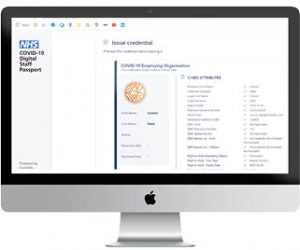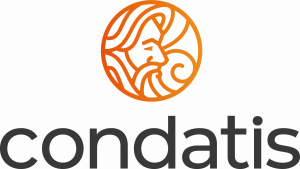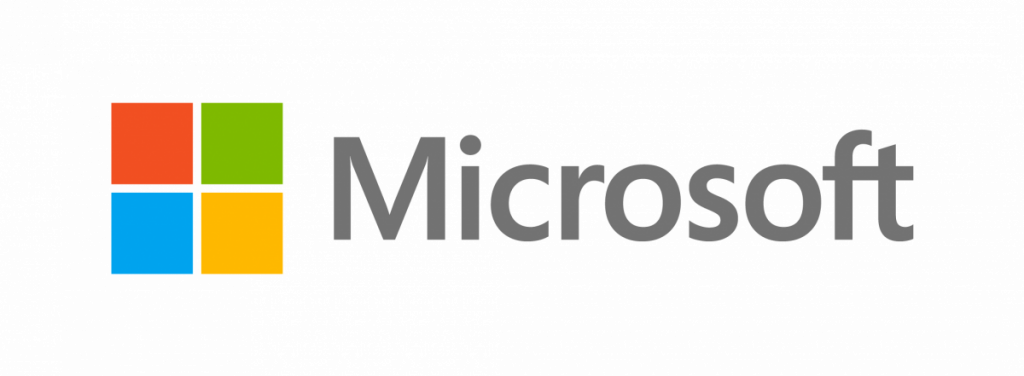The client
NHSX is a joint unit of National Health Service (NHS) England and the Department of Health and Social Care, supporting local NHS and care organisations to digitise their services. NHSX supports over 300 NHS Trusts, serving local populations to connect health and social care systems, transforming how the NHS delivers patient care at home, in the community, and hospitals. NHSX sets the overall strategy for digital transformation across all NHS Trusts, negotiating national contracts, designing the entire NHS system architecture linked across health and care, and setting the national policy delivering change.
The challenge
The NHS has an incredibly complex multi-organisational structure with separate NHS Trusts serving communities across every region of the United Kingdom. Healthcare staff are employed by an NHS Trust in a particular region. During times of high healthcare demands, staff may temporarily relocate to support another region and NHS Trust in the UK. To do this, staff must re-prove their identification, medical certifications and undergo a laborious paper-based onboarding process every time they need to move between clinics and regions. The entire process can take anywhere up to seven days to onboard staff.
In July 2019, as part of a digital strategy, NHSX set out their ‘People Plan’ to streamline processes and reduce duplication. The plan focused on continuous development and training that health professionals need to do throughout their careers. The objective was to enable easy data exchanges from one NHS Trust to another using a decentralized Digital Staff Passport (DSP) that healthcare professionals would own and have control over. The data would cover existing staff attributes such as employment history, qualifications, endorsements, vetting and training.
While this project was to take place over a few years, the sudden impact of the COVID-19 pandemic accelerated timescales, and the NHS needed to have the product ready within weeks. The old onboarding process was inefficient. It would take weeks for staff members to register in a hospital; HR needed to validate their university degree, check that all required training was completed, and have the right to work in the UK. HR and administration staff must repeat this onboarding process every time a staff member starts work at a different NHS Trust. This process leads to slow onboarding, high use of agency workers, frustration for staff and high levels of administration.
 Developing and implementing the DSP came with challenges around data security and interoperability. The NHS needed to be sure that a person using the DSP was allowed to work to avoid the wrong or underqualified individuals getting access to patient data or working with patients without having the right medical skills. The project looked at the challenges in issuing these passports, looking at integration points between HR systems and issuing systems to speed up the process. The project also tested how the NHS could use the DSP to log into clinical and workforce or staff bank systems and evaluated the effect on the induction processes for the healthcare professional.
Developing and implementing the DSP came with challenges around data security and interoperability. The NHS needed to be sure that a person using the DSP was allowed to work to avoid the wrong or underqualified individuals getting access to patient data or working with patients without having the right medical skills. The project looked at the challenges in issuing these passports, looking at integration points between HR systems and issuing systems to speed up the process. The project also tested how the NHS could use the DSP to log into clinical and workforce or staff bank systems and evaluated the effect on the induction processes for the healthcare professional.The digital footprint of a healthcare professional is complex. It starts with training in a medical school and a degree being awarded to them. Healthcare professionals need to be registered with their relevant professional body to obtain their licence to practice. They also need to prove current or previous employment status to access the appropriate systems which they use daily.
Healthcare professionals must undergo Disclosure and Barring Service (DBS) and Right to Work checks – these are vetting processes and need to be recorded. Moreover, a healthcare professional has a continuous professional development program, and all of these training and development awards make up their digital life footprint.
As more newly employed staff members might need remote onboarding, these attributes also need to be bound to an assured digital identity that binds the presenting wallet holder to a real live person and fulfils all the evidence of a digital identity.
The solution
The DSP is built on decentralised technology and enables healthcare workers to control how their identity details are used and stored. With the DSP, a healthcare professional’s data is held cryptographically on their mobile device using Connect.Me, Evernym’s digital wallet. The technology streamlines existing NHS HR processes allowing departments to issue verifiable credentials that certify their identity, qualifications, and training records. Sitekit and Condatis’ verifier app integrates Connect.Me with the NHS’s HR system. The technology significantly improves the HR process and allows the NHS to rapidly deploy staff to where they’re needed most, without unnecessary bureaucracy.
The benefits
The implementation of the DSP system is based on Microsoft Azure, and each issuing organisation has its issuing and verification portal hosted in Azure. It was built using architectural infrastructure stamps and allowed a rapid rollout to now nearly 100 NHS Trusts. Authentication to the issuing and verifying portal reused existing NHS login mechanisms. The authentication using decentralized identity was also tested as an authentication method for the verification portal. This enabled non-NHS employees to use the verifier, reducing overheads and the security downfalls of setting up new usernames and passwords.
“Our work with verifiable credentials enables us to envisage solutions to major problems within the workforce and beyond. It enhances the user experience with modern digital methods, which wouldn’t be possible without verifiable credentials. The NHS’s Digital Staff Passport program, starting with staff movement in the COVID-19 pandemic, will streamline lots of otherwise manual, time-consuming, and expensive ways of working. Overall, this will improve staff mobility and increase efficiency, which will provide many cost-saving benefits essential to an organisation the size of the NHS.”
– Phillip Graham, Digital Programme Director at Blackpool Teaching Hospital
Digital Staff Passport key highlights
- W3C standards-based architecture
- Simplifies staff movement between NHS organisations
- Saves time by providing a portable and verified record of identity and employment. The DSP offers a cryptographically secure way of storing this information that previously the healthcare professional had to gather manually in paper form or get up to date issued by their training providers or employers.
- The DSP simplifies data sharing and consent. NHS organisations need to have data sharing agreements in place. As the user holds the data, they can provide direct permission to access and verify the data.
- The system provides more efficient use of health professionals’ time and skills, enabling them to work when and where they are most needed.
- The NHS has a digital solution that saves lives. Approximately 100 army personnel with credentials were issued to help aid vaccination centres during the pandemic. There is no price tag to put on that benefit, and we are proud to have been able to support the NHS during such trying times.
The partners

Condatis
Condatis is a leader for bespoke external identity solutions. We are a Microsoft Gold Partner specialising in Azure Active Directory B2C and Verifiable Credentials. Condatis delivers employee, customer, and partner identity solutions to drive growth, reduce friction and improve security.
Our clients work with us to facilitate innovation in identity and build safe digital transactions. We have a track record of developing, designing, implementing, and supporting solutions at each stage of an organisation’s external identity journey.
More Case Studies

Sitekit Group
Sitekit Group delivers enterprise-grade digital transformation solutions for the public and private sectors. Sitekit has a strong footprint in healthcare, working to deliver digital transformation for the NHS and build a health and care system that is integrated, secure and built around individuals and their needs.
Find out more about Sitekit
Microsoft
Microsoft Identity team works on the most challenging engineering problems, solving issues that nobody has solved before. Serving over a billion users, the team runs a service that is critical to the day-to-day experience of every Microsoft Cloud user.
Find out more about Microsoft’s Identity Engineering Team

Evernym
Evernym was founded in 2013 to solve the digital identity crisis. We envisioned a world where consumers are in complete control of their digital identity, where privacy is a basic human right, and where consumers and organizations can foster a new relationship rooted in trust. And today, eight years later, we’re at the forefront of a rapidly growing global movement to decentralize digital identity.
Find out more about EvernymGet more content like this straight to your inbox
Please leave your details below to subscribe and receive case studies, news, and exclusive invitations to events.